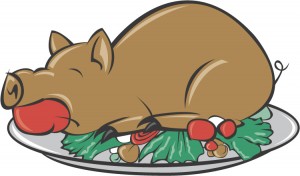In the church, there is much unbiblical misinformation about prophets and the prophetic gifts. Did you know that according to the Bible, there are eleven levels of a prophet, or that all the biblical prophets were Torah-keepers? Do you know the difference between an apostolic prophet and a congregational prophet, or the difference between a false prophet and a carnal prophet? This video answers these questions and much more.
Category Archives: Scripture
Blog Scripture Readings for 6-14 Through 6-20-15
Aside
THIS WEEK’S SCRIPTURE READINGS FOR STUDY AND DISCUSSION:
Parashat Korach — Numbers 16:1 – 18:32
Haftarah — 1 Samuel 11:14 – 12:22
Prophets — Jeremiah 45:1 – 51:64
Writings —Esther 3:1 – 9:32
Testimony — 1 Corinthians 1:1 – 7:24
Most of this week’s blog discussion points will be on these passages. If you have general comments or questions on the weekly Scripture readings not addressed in a blog post, here’s a place for you to post those. Just use the “leave a reply” link below.
The full “Read Through The Scriptures In A Year” schedule, broken down by each day, can be found on the right sidebar under “Helpful Links.” There are 4 sections of scripture to read each day. One each from the Torah, the Prophets, the Writings, and from the Testimony of Yeshua. Each week, the Torah and haftarah readings will follow the traditional one-year reading cycle.
Weekly Blog Scripture Readings for 6/14 through 6/20/15.
New Video: How Torah Changed My Life
This video is the amazing testimony of a man who was raised as a Christian, graduated from Bible college and then discovered the Hebrew or Torah roots of the Christian faith, and how the Torah changed his life as a believer in Yeshua the Messiah for the better.
Audio is low on this video until 3:30 when the volume becomes normal.
“Common and Unclean” Explained
Romans 14:14, Nothing is unclean in itself. In this verse, is the Apostle Paul declaring that there is no longer a distinction between clean and unclean foods, therefore making void the biblical dietary laws? Let’s analyze the contextual and linguistic aspects of this passage to see what Paul is really saying here.
The word unclean (koinos) in this verse can also mean “common,” and in three places in the Apostolic Scriptures the two words “common” and “unclean” are used side by side; q.v. Acts 10: 14, 28 and 11:8, which says, “But I said, Not so, Master: for nothing common [koinos] or unclean [akathartos] has at any time entered into my mouth. “From this example, we see that unclean in Romans 14 can also mean “common” as we find in Acts 11. The word for unclean in Acts 11:8 is an entirely different word; therefore, akathartos is a reference to unclean meat, as proscribed by the Torah. Koinos, on the other hand, cannot mean unclean meat in Romans 14, or else Acts 11:8 would be a superfluous and unexplainably redundant in using two words that mean exactly the same thing. The word koinos is used elsewhere in the Apostolic Scriptures not to mean “unclean,” as in “unclean meat,” but “unclean” as in unwashed hands (Mark 7:2), or “common,” as in something that is shared commonly among people (Acts 2:44; 4:32; Tit 1:4; Jude 3). Of the seven places this word is used in the Apostolic Scriptures it never means unclean meat.
In David Stern’s Jewish New Testament Commentary, on Romans 14 he states that Paul is not abrogating the biblical dietary laws. On verse 14, Stern states that Paul is referring to ritual purity, not whether something is unclean (nonkosher) meat or not. What is ritual purity? It is a reference to either how something was slaughtered, and whether it was bled properly, or whether the meat had previously been sacrificed to idols before being sold in the public meat markets—a common practice in that day in pagan cities.
Furthermore, Paul could not have been advocating eating swine, and other unclean meats, without making himself into a total hypocrite and liar, since in several places in the Book of Acts he strongly states (toward the end of his life) that he was a Torah-observant Jew and walked orderly and kept the Torah (Acts 21:20), and that he had not broken any of the Torah laws (Acts 25:16), which would have included the dietary laws contained in the Torah.
Let’s also keep an important point in mind when speaking of YHVH’s biblical dietary commands: When someone gets born again or regenerated spiritually their digestive system does not change. Eating unclean or biblically unkosher meat is, from a purely medical standpoint, deleterious to one’s health regardless of whether one is a believer in Yeshua or not.
Videos: Tying Tzitzit and the Law of the Fringes
In this video, Natan Lawrence teaches you about the curious biblical law of the fringes from Numbers 15:37–41 and how it relates to you. Learn about the prayer shawl and how it helps to point man to his Creator—YHVH Elohim. A free study guide is available at http://hoshanarabbah.org/blog/2013/03/24/the-law-of-the-fringes/.
In this video, Natan Lawrence shows you how to make your own fringes or tzitzit (plural: tzitziyot). It’s fun and easy to fulfill the biblical command to wear fringes on your garments (Numbers 15:37–41). Free study guide available at http://hoshanarabbah.org/blog/2013/03/24/the-law-of-the-fringes/.
Tzitzit — Don’t Leave Home Without Them!
Numbers 15:37–41. Tassels on the corners. The command to wear tzitzits on the corners of one’s garment was to act as a reminder to keep one from committing intentional sins, even as a wedding ring worn on the finger serves to remind one of one’s marriage covenant, and help keep one from committing adultery. This is why this command is placed directly after the warning against committing intentional sin (vv. 30–31), and the example of the man who committed intentional sin by gathering sticks on the Sabbath (vv. 32–36).
A Brief Study on the Subject of Tzitzits. Shofars, Davidic worship dance, prayer shawls (talit or tallit), a Torah scroll and tzitziyot (plural for tzitzit — fringes or tassels) all have something in common: they are hallmark symbols of those who are returning to the Hebrew roots of their faith. When a Christian begins to discover their ancient spiritual roots, it’s like coming home, or like a hand fitting into a glove. It’s not long before they begin acting out their renewed faith in a highly demonstrable manner such as growing beards, wearing fringes, blowing shofars, keeping the Sabbath and biblical feasts. Outsiders may view this as mere religious fanaticism and exhibitionism, but to the saint who truly feels that he has returned to his spiritual roots, these things are symbols of a faith that is more than superficial in nature. They represent a connectedness to his spiritual family tree, to the nation of Israel and eventually to the God of Israel, YHVH Elohim, the originator of that faith, family tree and nation.
As a wedding ring symbolizes the covenantal agreement between spouses, so the blue fringes worn on the corners of one’s garments are an outward symbol of one’s spiritual commitment and devotion to the Elohim of Israel through obedience to his instructions in righteousness as found in the Torah portion of the Scriptures.
Indeed, it is not because of a man-made tradition, but because of a direct command in the Torah that redeemed Israelites wear tzitziyot, for we read in Numbers 15:37–41,
And YHVH spoke unto Moses, saying, “Speak unto the children of Israel, and bid them that they make them fringes [Heb. tzitziyot] in the borders of their garments throughout their generations, and that they put upon the fringe of the borders a ribbon of blue. And it shall be unto you for a fringe, that you may look upon it, and remember all the Continue reading
Why was gathering firewood on the Sabbath a capital offense?
Numbers 15:32. A man gathering sticks. A man gathering sticks. The man gathering sticks on the Sabbath is an example of intentional sin, for which there is no sacrifice (atonement or forgiveness; Num 15:30–31).
Furthermore, the act of gathering sticks on the Sabbath teaches us something else. Sticks are used to start fires, something that the Torah commands us not to do on the Sabbath—especially if it relates to our work, business or secular activities such as building the tabernacle (Exod 35:3 cp. vv. 4–35 or cooking food, see Exod 16:23).
A fire is a biblical metaphor for strife and division, which is usually caused by the misuse of the tongue (Prov 16:27; 26:20–21; Jas 3:5–6). Those who stir up the fires of strife and division must be put out of the camp, even as the man who was gathering sticks on the Sabbath to build a fire had to be put out of the camp of Israel.
Similarly, Paul gives instructions about putting individuals outside of the camp or congregation of redeemed Israel in several places (Rom 16:17–18; Tit 3:10 cp. 1 Cor 5:9–11 in reference to a reviler).
Why should such individuals be treated as a pariah to the congregation of the righteous? Simply this, with smooth words and flattering speech they will deceive the hearts of the simple (Rom 16:17–18) and destroy the congregation. Paul calls such individuals who use their tongues to draw a following grievous or savage wolves and perverse men (Acts 20:29–30).




